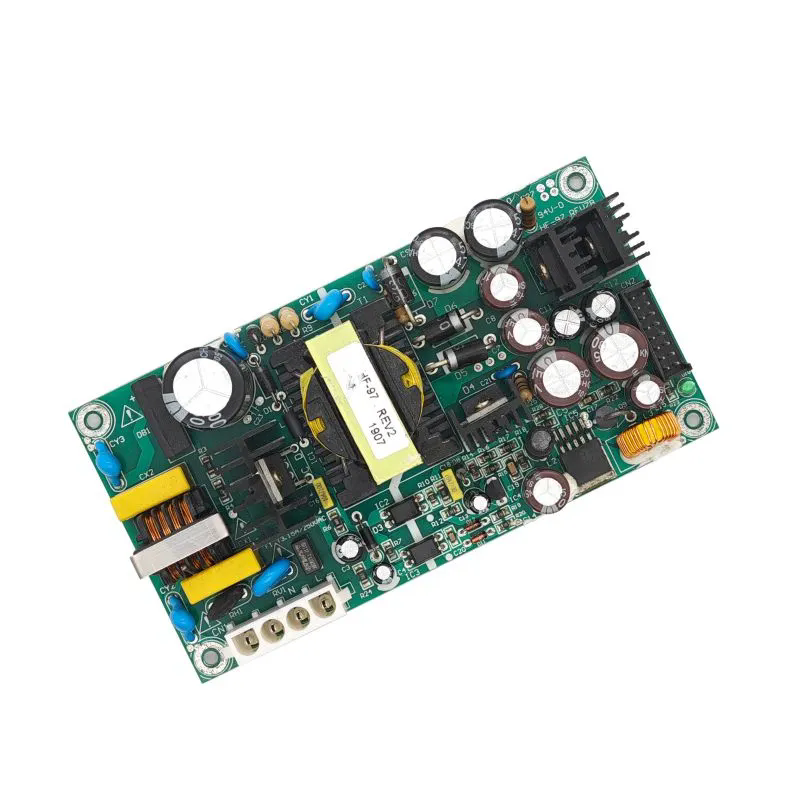What Role Does Industrial Control PCBA Play in Modern Automation Systems?
2024-11-15
In today’s rapidly evolving world of industrial automation, technology plays a crucial role in optimizing operations, enhancing efficiency, and ensuring smooth performance across various manufacturing processes. One key component in this technological revolution is the Industrial Control PCBA (Printed Circuit Board Assembly). But what role does Industrial Control PCBA play in modern automation systems?
In this blog, we will explore the importance of PCBA in industrial control systems, how it contributes to automation, and why it is considered the backbone of industrial technology.
What is Industrial Control PCBA?
A Printed Circuit Board Assembly (PCBA) is a critical electronic component that houses various interconnected electronic components such as resistors, capacitors, diodes, and integrated circuits (ICs) on a printed circuit board (PCB). The PCBA serves as the brain of many electronic devices, enabling the flow of electrical signals and controlling functions in devices across various industries.
An Industrial Control PCBA is specifically designed for use in industrial applications, where reliability, precision, and long-term durability are of utmost importance. These PCBA units are integrated into control systems to monitor, regulate, and automate processes in manufacturing, robotics, energy systems, and more.
How Does Industrial Control PCBA Contribute to Automation?
Automation involves the use of control systems to operate machinery and processes, reducing the need for human intervention. Industrial Control PCBAs play a pivotal role in enabling this automation by performing a variety of tasks that are essential for the proper functioning of automated systems.
1. Real-Time Process Control
Industrial control systems often require real-time monitoring and adjustments to ensure processes run efficiently and meet operational requirements. The Industrial Control PCBA enables this by incorporating sensors, microcontrollers, and actuators that collect data from machinery, equipment, or environmental conditions.
- For example, in a manufacturing plant, an industrial control PCBA might be used to monitor temperature, pressure, and speed of machinery, adjusting the system parameters in real time to maintain optimal conditions.
This real-time data processing allows businesses to minimize downtime, prevent equipment failure, and ensure consistent quality in production.
2. Improved Process Automation
In many industrial environments, complex processes need to be automated to increase production rates and reduce labor costs. Industrial control PCBA provides the functionality for these automated systems by controlling various inputs and outputs (I/O) across the system.
- For example, in a robotic arm used in assembly lines, the PCBA controls the arm’s movements based on programmed instructions, allowing the robot to carry out repetitive tasks with precision and speed. The same concept applies to automated systems in conveyor belts, packaging machines, or even welding systems.
By managing the input/output signals (such as controlling the position, speed, or force of machines), the Industrial Control PCBA is essential for ensuring the efficiency and accuracy of automated tasks.
3. Communication with Other Systems
One of the critical aspects of automation is the interconnectivity of devices and systems. Industrial Control PCBAs facilitate communication between different parts of a control system, allowing them to work in harmony.
- In distributed control systems (DCS) or programmable logic controllers (PLC), PCBAs enable communication between sensors, actuators, controllers, and other monitoring devices. This ensures that information flows seamlessly between components, allowing for the synchronization of tasks across the entire system.
The communication protocols (e.g., Modbus, CAN, Ethernet) embedded in these PCBAs help integrate various devices, even across different machines or locations, ensuring that the entire process runs smoothly and efficiently.
4. Data Logging and Diagnostics
An often-overlooked but important function of Industrial Control PCBAs is data logging. Industrial systems rely on constant monitoring and recording of operational data, which is used for performance analysis, predictive maintenance, and troubleshooting.
- PCBA units can be programmed to store operational data, track performance metrics, and even monitor the health of connected equipment. This data can be accessed by engineers or maintenance teams to perform diagnostics, identify potential issues, and prevent system failures before they occur.
For instance, a control PCBA in a wind turbine might log data on wind speed, temperature, and rotational speed, allowing operators to ensure the turbine is operating at peak efficiency and perform maintenance when necessary.
Why is Industrial Control PCBA Important?
1. Reliability in Harsh Environments
Industrial control systems are often deployed in challenging environments, such as high-temperature zones, factories with high levels of vibration, or areas with exposure to dust and moisture. Industrial-grade PCBAs are designed to withstand these harsh conditions and operate reliably over extended periods.
- With robust components and tough protective coatings, Industrial Control PCBAs ensure that equipment functions without failure, even in demanding industrial environments. This level of reliability reduces downtime and increases the overall productivity of manufacturing or automation processes.
2. Cost Efficiency
While Industrial Control PCBAs are an investment in the short term, their use can lead to significant cost savings over time. The automation of repetitive tasks, reduction in human labor, and prevention of equipment failure all contribute to lowering operating costs.
Additionally, the energy efficiency enabled by these systems can lead to reduced utility costs. For example, an automated control system that optimizes the energy usage of motors, pumps, or HVAC systems can help businesses save on electricity and fuel.
3. Scalability and Flexibility
Industrial control PCBAs are often part of modular control systems, allowing manufacturers to scale up or modify their automation systems as needed. This scalability makes it easier to adjust the control system in response to changing production demands or when upgrading equipment.
For example, an assembly line might start with a few automated machines controlled by PCBAs, and as production volumes increase, more devices can be added to the network, all managed by a central control system.
4. Customization for Specific Applications
Another major advantage of Industrial Control PCBAs is their ability to be customized for specific applications. Manufacturers can design PCBAs with specialized features tailored to the unique needs of their industrial environment.
- Whether it’s high-speed processing for packaging lines, temperature control for food production, or precision monitoring for semiconductor fabrication, the flexibility of Industrial Control PCBAs allows businesses to create a solution that perfectly fits their needs.
Industries That Benefit from Industrial Control PCBA
1. Manufacturing: Automated assembly lines, robotics, and packaging machines rely heavily on industrial control PCBAs.
2. Automotive: Control PCBAs are used in various automotive manufacturing processes, such as engine testing, painting, and assembly.
3. Energy and Utilities: PCBA systems control everything from power grid management to renewable energy sources like wind turbines and solar farms.
4. Pharmaceuticals: Control systems in pharmaceutical manufacturing ensure precise mixing, filling, and packaging processes.
5. Food and Beverage: Automated production lines and temperature control systems in food processing plants depend on Industrial Control PCBAs.
Conclusion
So, what role does Industrial Control PCBA play in modern automation systems? Simply put, it is the core component that powers the automation of critical industrial processes. By enabling real-time process control, automation, data logging, and seamless communication between devices, Industrial Control PCBA ensures that industries operate efficiently, reliably, and cost-effectively.
As industrial systems continue to evolve with the integration of smart technologies and IoT devices, the role of Industrial Control PCBAs will only grow in importance. They will continue to serve as the backbone of automation, driving advancements in everything from manufacturing and energy to logistics and healthcare. Investing in quality Industrial Control PCBAs is not just a smart move for today – it’s a critical step toward future-proofing your automation systems for tomorrow.



